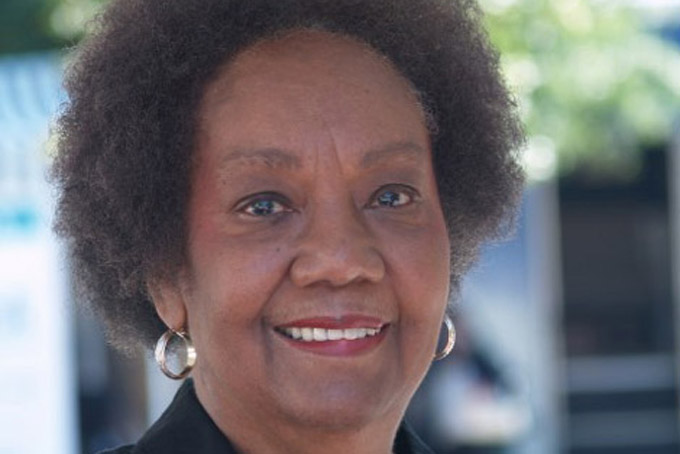
NEW YORK – The end of the year and the beginning of a new one always is a moment to look back to what might have been and to look forward to what may be. Amid this flip of the calendar and tick of the clock we lost four remarkable Black women, and while they may not have been equal in public notice, they all possessed a life and legacy worth recalling-and never forgetting.
Jocelyn Cooper, an indomitable force in Brooklyn’s politics for decades, was the first to make her transition. Cooper, 86, joined the ancestors on Dec. 21 and it was her ceaseless community activism and organizing that paved the way for such formidable political leaders as Shirley Chisholm, the nation’s first African American female congresswoman.
Cooper was also a force in the world of media, inspiring and assisting her late husband, Andrew, in the launching and establishing The City Sun newspaper that offered a hard-hitting, take-no-prisoners approach to coverage of Black and White affairs. Although she possessed a bachelor’s and master’s degree in social work from Adelphi University, Cooper devoted most of her time to the political and economic aspects of Black livelihood, never conceding an inch of her powerful integrity.
Reports of the death of Billie Allen-Henderson Dec. 29 in Manhattan at 89 reverberated with sorrow, particularly in theatrical circles. She was best known as Billie Allen before her marriage to musical great Luther Henderson, who died in 2003. Under this name, she gained acclaim in practically every realm of performance from stage, screen, and television. And she also earned wide praise for her skill as a director.
Many in the Harlem community recall the role she played in founding the Frank Silvera Writers’ workshop, which she did with the able assistance of Morgan Freeman, Garland Lee Thompson, and Clayton Riley. She was a generous off stage as on, often opening her home for aspiring actors and playwrights to present their latest creative efforts.
On this latter point is the response of playwright and Professor Michael Dinwiddie’s recollection upon hearing of Allen’s passing. “Billie was a wonderful person who went out of her way to help others,” he wrote in an email. “She has impacted many of the people working in the American theatre today. Her co-founding of the Frank Silvera Writers’ Workshop, the League of Professional Theatre Women and her work with the Tony Awards nominating board was all about giving access to others — those who had been excluded from the mainstream of the American theatre. I certainly owe her a great debt. Because of Billie, I became a Tony nominator (2007-2010). She was a person of inimitable style and grace.
“On a more personal note,” he added, “she opened her fabulous duplex apartment to me for my wedding to Vincent Parham in 2013. Vincent and I had decided to simply go down to City Hall for the ceremony. But Billie insisted. ‘Nothing’s too good for my boys!’ And before we knew it, we were swept up in her wonderful spirit. The wedding was beautiful, and Billie did everything to make it memorable. She didn’t harbor any of the ridiculous biases one sometimes find among other generations. That gives you an idea of how progressive and modern she was! Vincent and I will miss her warmth, her humor, and her delectable conversation.”
Dinwiddie, an accomplished pianist and vocalist, at Allen’s request often performed at her parties and during special moments at her home.
Allen’s passing has thus far gone almost without notice compared to the coverage given vocalist Natalie Cole. The daughter of the great Nat King Cole with whom she renewed her place at the top of the musical charts with their recreated version of “Unforgettable” in 1991, Natalie died on Dec. 31 in Los Angeles. She was 65 and over the years battled with a number of addictions, including heroin. For many years she refused to surrender to an innate singing talent, choosing not to follow in her the footsteps of a father and mother and their fame as performers.
But once she relented she was Grammy bound (nine of them) and was often compared to Aretha Franklin for her stirring rendition of pop, soul, and rhythm and blues repertories. Few will forget “This Will Be (An Everlasting Love)” from an album that won her two Grammys in 1975, including one for best female R&B performer that year. That was just the beginning of a phenomenal career that managed to soar despite the menace of drug abuse.
Dr. Frances Cress Welsing is the last of these outstanding Black women to leave us amid the holiday celebrations. Welsing, best known for her book The Isis Papers-The Keys to the Colors (Third World Press), made her transition on Jan. 2 following a stroke in Washington, D.C. She was 80. A prominent figure in Black Nationalist and Afrocentric circles for her theories of white supremacy and dominance of melanin, she never wavered in her challenge to racism and discrimination. It was as a trained psychiatrist that she began formulating her theories that were given wider circulation by a coterie of colleagues, including Neely Fuller, Jr., Bobby Wright, Haki Madhubuti, Leonard Jeffries, Molefi Asante, et al.
Her Cress theory was the touchstone for a generation of African American activists determined to overthrow the domination of European racism. At the close of The Isis Papers, she elaborated on the propagation of AIDS holocaust. “As truth always surfaces, in time we will know the full details of the massive deception of the AIDS holocaust, when the current ‘Big Lie’ is unveiled.”
Donald Smith expressed his deep admiration and respect for Dr. Welsing, recalling “her work, and featuring her at the Annual Conference of the National Alliance of Black School Educators when I was president.”
Essential to these Black women was a quest for the truth – and for wisdom – and we are the collective benefactors of their singular gifts. And we should not forget to remember them.